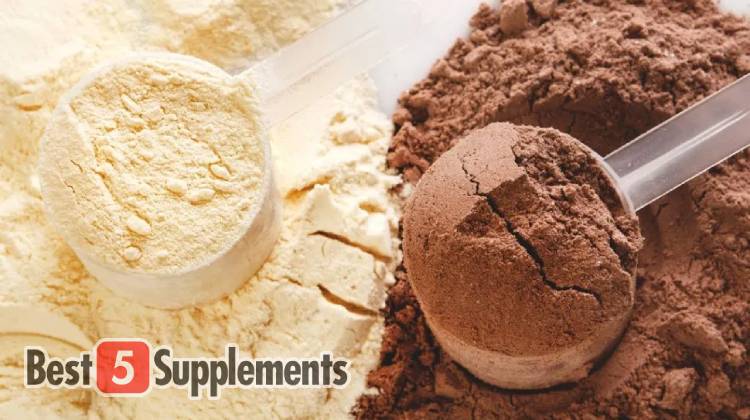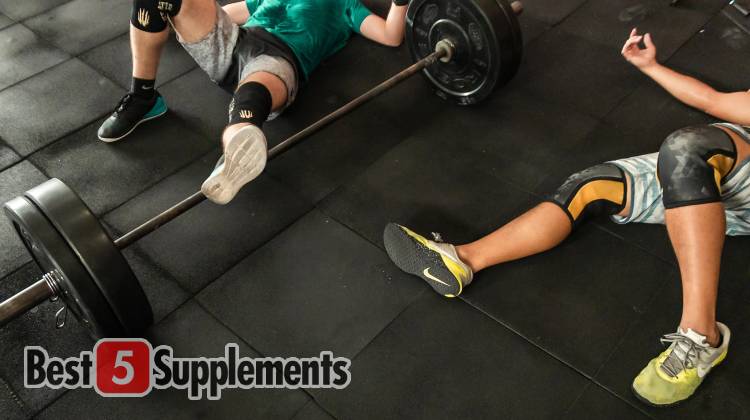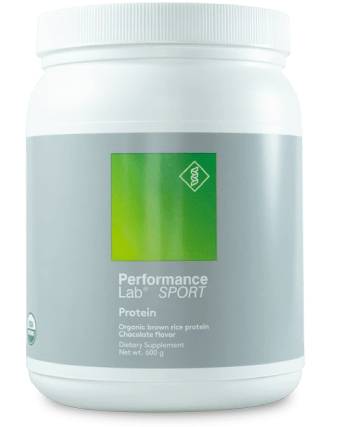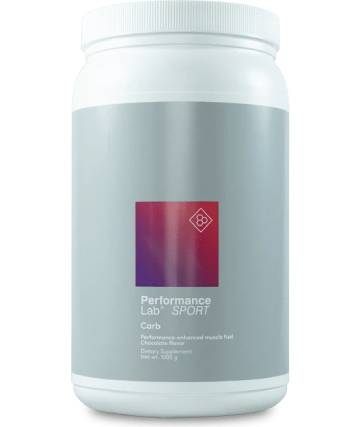
The basics of good performance nutrition lean heavily on proteins and carbs. In many ways, these are the essentials, while other nutrients are a ‘bonus’.
This is because carbs and proteins represent the energy and building blocks you need, so they demand your attention.
Today, we’re going to go through the basics of how to handle your protein and carbs (before, during, and after a workout) and why they’re so important.
We’ll also look at our favourite Protein and Carb combo; two new products from respected supplement manufacturer Opti-Nutra, Performance Lab Protein and Performance Lab Carb. Effective alone but designed to work in synergy with one another to take care of your pre-, intra- and post-workout needs.
Table of Contents
Carbs and Proteins: What and Why?
The foods you eat and the supplements you take – especially during the pre-, intra-, and post-workout periods, will have a significant impact on your health and results.
The roles of carbs and proteins in the diet may diverge seriously, but they’re tied together by the processes of energy metabolism and tissue repair/growth.
This is why we love the combination of the two together and why they are closely related for better overall performance.
Proper management of the two are going to be essential. The planning, habit-building, and supplementation around the two can make or break your hard work in the gym.
If you’re not fuelling your body properly, no amount of good training can make up for it.
Protein
The point of protein is to offer the amino acids that will become your tissues. These are the building blocks of proteins; both the proteins you eat/ consume and the proteins that make up your muscles and tendons.
Proteins are thus the only form of nutrient that is absolutely essential. While there are types of fats that can’t be made in the body and fibre is an important nutrient for digestive wellbeing, proteins are the priority and the best place to start.
Your body will cannibalize itself – muscle, tendon, and other tissues, if you are deficient in protein.
Keeping your dietary levels high keeps you healthy and prevents the breakdown of functional tissues for their spare parts or energy.
Protein for Pre-Workout
Pre-workout protein intake is difficult to nail down; a lot of the time it has interesting applications but taking too much preceding a workout can result in digestive issues. Particularly so with whey protein.
In contrast, our recommended Performance Lab Protein, made from Oryzatein® organic whole brown rice, is clean, certified organic, naturally flavoured and enhanced with probiotics to improve digestion and absorption.
In short, it’s likely to be easier on the stomach with no side effects, making it easier to take pre-workout.
Keeping your amino acid availability high is great for keeping muscles fed and supported during hard work.
There’s never a bad time to have better dietary protein intake. It’s a way of improving a wide variety of health markers with relatively little work.
Protein for Intra-Workout
The benefits of keeping amino acid levels high aren’t just for before/after a workout. It’s possible to consume your protein during a workout – especially if you’re training for hours at a time.
If this is you, supplementary levels of protein during a workout can help. This is a way of keeping amino acid levels high, preventing catabolism and supporting muscular/tendon repair.
As before a workout, one of the hardest parts of this is balancing the digestive stress and demand of a protein powder with the muscular benefits.
Don’t chug it- make sure you’re using a digestion-friendly protein source, like Performance Lab Protein.
Combining with other compounds – like the carbohydrates we’re going to discuss later, is another way of stabilizing the impact of this kind of product.
Protein for Post-Workout
Why does protein matter post-workout?
Firstly, protein is the most time-sensitive nutrient due to the signaling process we mentioned above. The better you handle the nutrient timing of your protein intake, the better. It’s going to change how you recover and grow.
It’s not an enormous change, but it does contribute to your overall health, wellbeing, and performance.
This is obviously apt during post-workout times, when your body requires recovery and resources at a premium.
Muscles are damaged during workouts, and tendons are stressed from activity. These are both protein-rich tissues and the protein you eat goes into producing more of them – either for repair or strengthening.
The proteins you consume become the tissues you use, and so they have to be prioritized. The scientific evidence around the topic is clear: pre- and post-workout nutrition should be focused on keeping protein levels high. This will help support better muscular and connective tissue health/performance.
It’s not entirely bro-science to get your protein in after a workout. Just focus on keeping your pre- and post-workout nutrients as close together as possible – and ideally no more than 3.5 hours apart.

What to Look For?
Good proteins have to be complete proteins; they should contain the whole collection of amino acids.
Supplementing a protein without this factor will hugely limit the benefits, since you’re taking up a lot of protein by weight from your diet without essential amino acids.
The concentration and release of amines like Leucine – which is a key signaling amine for muscle gains, is also important.
Good protein powders will provide ample quantities of leucine and ideally in a way that has a mixture of rapid signalling and sustained release over time.
You also need to consider digestibility –specifically your own needs. A lot of people struggle with the digestive stress of whey and the bloating or ‘movements’ that accompany it.
Avoiding this – and getting something with a little more digestive benefit – can be a great shout.
If you’re using a protein powder daily, you want it to be a pleasant experience… And you don’t want to be in the bathroom for hours on end!
On top of this, you should be looking for something with a good protein accretion rate and good overall total protein intake.
This just means you’re not leaning on low protein-per-calorie supplements, which also abound.
Our Favorite Protein Supplement:
Performance Lab Protein
We took the above into consideration when choosing our favorite protein supplement – Performance Lab Protein.
Its main ingredient, Oryzatein®, is the world’s first patented organic protein powder made from specially engineered brown rice.
It’s a complete protein, containing all the essential amino acids and a generous dose of BCAAs.
Studies show absorption is much better with Oryzatein® than with hemp, pea and inferior brown rice proteins. The leucine content in Performance Lab Protein has also been shown to be absorbed 30% faster than with whey protein.
The overall concentration is lower but the peak for leucine comes nice and early, offering a rapid signal for muscle growth, but a sustained release.
This makes it a great pre and post-workout source, but the sustained release makes it appropriate at any time of the day. The need for dietary protein is a long-term one and, thus, the benefits of supplementation are diverse, versatile, and profoundly effective.
This is a great compromise and puts it head and shoulders above comparable proteins like soy, which has poor digestibility by comparison. This is why it crowns our list of best protein supplements.
*To Buy, Visit: www.performancelab.com *
Carbs
Your carbohydrate intake plays into the same processes as the protein. While the protein is the raw material, the carbohydrates in your diet are the energy source that enable the whole process.
The main role of the carb in your diet is to provide energy – and sharpish. While fats are also for this role, they play the long-term energy source.
Carbs, on the other hand, are energy for the next 24 hours at most.
There’s very little chance of storing a carbohydrate for much longer than this and their general cycle – from being consumed to gone is somewhere around a day.
This shows you already, that timing has a more important role than many other nutrients.
From the moment they enter the mouth, carbohydrates improve your performance. They combat fatigue, provide energy, and tell your body it’s time to go.
The glucose in carbohydrates is the essential unit of energy for your metabolism. It’s the closest thing you’re going to get to pure dietary energy, and it’s stored in the muscles, liver and used by almost every tissue in the body.
This makes your short-term carbohydrate intake a key factor in short and mid-term performance. The recovery and exercise changes that produce the best results are dependent on these carb choices and feeding habits!
Carbs for Pre-Workout
A pre-workout carbohydrate is one of the easiest and most effective ways of improving workout performance. It’s a way you can leverage your diet to produce the best training and thus the best results.
The benefits are best when combined with caffeine, as the studies show this improves both physical and mental performance.
Consuming carbs is a great way of combating general fatigue and improving energy stores in both the muscles and the liver.
The benefits add up when you give yourself time to digest these nutrients, but they’re useful even within the 30-60 minutes before a workout.
Carbs for Intra-Workout
Intra-workout carbohydrates have a venerable history; they have been used by athletes for decades because they boost performance.
Again, the benefits are both physical and mental. Carbs reduce feelings of fatigue, improve power output, and improve endurance at every intensity level.
The intake of carbohydrates during these times are required to be both rapid and well-digesting. You don’t want to cause digestive distress or ‘feel heavy’ when you’re training. These only reduce the quality of your workouts and thus your results.
This is why we’re reviewing carb powders – especially for their absorption speed and the digestive comfort. We’re looking for a carb source that’s rapidly absorbing, low-distress, and not just sugar.
These are the keys for better intra-workout carbohydrates.
Post-workout Carbohydrates; the role and importance
The point of post-workout carbohydrates is two-fold.
The first key benefit is to replace what has been lost. It replenishes muscular stores of glycogen and stores glycogen in the liver. These are often at higher levels than before your workout, in preparation for the future.
Secondly, it acts as the energy reserve – and signal – for improvement. The energy of carbohydrates is a part of the signal for muscle growth by indicating the presence of enough short-term energy to build new tissues and strengthen the muscles and tendons.
It allows the body to use protein stores as best possible, indicating that there’s enough energy to build, rather than breaking down.
This energy abundance is one of the keys you’re going to want for better muscle gains.
Whether you’re burning fat or building muscle, proper post-workout carbohydrates are essential. There’s never really a bad time to improve these habits, as they’re always going to be present and relevant to your performance, recovery, and results.
What to Look For?
We’ve discussed carbs before, but it’s always important to know what you’re looking for. Informed choices produce the best results and the least regret!
The point of a carb source is balancing up two simple, somewhat-opposite demands:
- A fast release to ensure proper signaling and get you recovering right away
- A sustained release to ensure you’re not just dumping carbs and crashing/hungry later on
Obviously, you can see that fast-but-slow isn’t an easy one. Sugar is fast absorbing but leaves you crashing, while complex starches are often slow-releasing but sustained over time.
Why is each of these important?
Rapid absorption is key for starting the recovery process right away. After a workout your body needs energy and specifically to replenish the energy stores in the muscle (glycogen) that you just burned up with all those curls.
The problem of crashing is, however, a response to this. If you’re just spooning sugar into your face, you’ll trigger insulin response and shuttle energy to the muscles, but you’ll also use tons of your daily carb intake without feeling full or providing longer-term energy.
The problem with this is that we know sustained carb availability is important. Muscles don’t just magically repair; it takes time and the process of repairing/building muscle can take up to 2 days after a workout.
This is why sustainability is important: you could eat a fast-release carb and then a slow-release carb afterwards. However, that’s a lot of planning and inconvenience that a better-quality carb supplement can solve.
This is also why we look for carb supplements that play a multifaceted role in your diet; we prefer products that suit use both before, during, and after a workout – and those that can be used profitably at any part of the day.
Our Exemplar Carbohydrate Source:
Performance Lab Carb
The Performance Lab Carb is one of the best ways of dealing with these competing demands. The use of the KarboLyn advanced carb source is one of the keys.
It’s a form of carb that is rapid absorbing but sustained release, offering a way around both the signaling and hunger problems. It offers carb availability for a long time without the weak post-workout signaling you’d get from a slow carb like oatmeal.
This also makes it an adaptable source whether you’re consuming it first thing in the morning or first thing post-workout.
The suitability to a wide range of situations is one of the best things we could ask for and it makes for an appealing all-round carb supplement.
We prefer Carb to other KarboLyn sources because of the combination with pink Himalayan salt (for electrolyte balance and reducing muscle damage), coconut water powder (for rehydration), and especially cinnamon – which improves insulin sensitivity and thus carb effectiveness.
It’s a well-thought-out product and we like it even better for how it combines with protein – which is a huge deal.
*To Buy, Visit: www.performancelab.com *
Combining Protein and Carbs
The combination of carbs and proteins is even more useful than their individual use. They’re important on their own, but a well-selected combination of protein and carbohydrates can provide serious benefits.
They’re best used together because of their combined effects on things like muscular strength, endurance, and repair.
They also benefit from being consumed together due to the metabolic responses they prompt.
The balance of the two also provides a sustainable, regular digestive process. This is one of the reasons that a protein-rich meal may feel different to a protein shake – and one of the factors you need to manage for a better experience with your performance nutrition.
There are clearly metabolic and digestive benefits to the co-ingestion of these nutrients. They’re great for supporting better performance and even more so when combined – making it a pretty clear choice whatever your timing; pre-, intra-, or post-workout.
Before a Workout
One of the best reasons for combining the two before a workout – ideally an hour or so beforehand – is to speed up the shuttling of carbs to muscles. This is where they’re going to do the good work of improving muscular energy and performance, so getting them there faster is a huge benefit.
The combination of the two – especially the Performance Lab products with improved insulin action and osmolarity – produces a fantastic improvement.
These add up to better workouts and even better recovery after the exercise itself.
Combining protein and carbs is also a great way of tactically improving both the amino acid and blood sugar levels to fuel workouts. The availability of both of these nutrients combats the risk of muscle breakdown – a key benefit when you’re on a calorie-deficit diet.
If you’re looking for better results, then the combination of better training and better recovery are legitimately the majority of the hard work. If you can nail these two down, you’re already on your way to success.
After a Workout
This isn’t the only time you should be consuming a combination of high-quality carbohydrates and proteins – but it is the most important.
The uptake of both at once is one of the keys to better recovery and you can kickstart this process early on with responsible and appropriate supplementation.
The two are consumed together for many reasons aside from just being the most important post-workout nutrients. For example, the release of insulin during carb-intake is best when combined with plenty of protein availability.
The general anabolic processes that are going on while you recover are reliant on both of these nutrients. Producing rapid energy uptake from carbs while you’re protein-abundant is the best way to improve your recovery right off the bat.
Carb-sensing in the mouth alone is enough to induce changes to your nervous system, while dietary protein combats catabolism. The combined intake is a fantastic way of switching off the stress-inducing state and getting towards rest, recovery and growth.
Combining the two is convenient, satisfying, and incomparably effective. It’s a great choice and saves you the effort of rushing down a post-workout meal – a carb/protein powder shake is a great tool!
The simple fact is this: co-ingesting your carbs and protein is better than just one or the other. Your body needs both and the combination is a perfect response to hard exercise.

What Makes a Good Protein-Carbohydrate Combination?
Our favorite example – as you might have guessed from what we said regarding carbs and proteins independently – is a mixture of the high-quality Performance Lab SPORT Carb and SPORT Protein.
There’s no better way of getting a good mix than mixing two top-quality powders. The entire Performance Lab line of supplements is designed to work together well, so the combination is going to bring more benefits and produce even better results than alone.
The two are also flavor matched, making it easy to combine them into a 2-for-1 chocolate shake.
When it comes to supplementing your diet, recovery is one of the absolute keys. There’s very little in the world of nutrition that can give you the same bang for your buck as a carb-protein shake after exercise.
You could get a pre-mixed powder but we’re not huge fans: the quality of carbs and proteins in these supplements tends to be much lower.
Control over your own diet is important, and especially when it comes to quality. There are a lot of sugary options or low-quality proteins, but the Oryzatein in Protein – and the KarboLyn in Carb offer top-quality alternatives.
Staying aware of your carb and protein sources – where they come from and their overall quality – is key to improving your diet.
Closing Remarks
The overall point of this article is a simple one: you need protein and carbs before and after a workout (and maybe even during, if you’re training enough).
There are tons of ways you could do this but consuming a purpose-made protein and carb powder mix is one of the best.
The convenience and thoughtful design behind the Performance Lab supplements is one of the reasons we think they’re the best choice. Unless you fancy bringing a potato and fish to the gym, you’re going to be best served by a top-quality combination of carbs and proteins.
The market for the combination of the two is hit and miss, which is why we think it’s worth choosing a top-quality carb and protein supplement separately and combining them.
This is what we think the Performance Lab Carb and Protein are best for.
KarboLyn and Oryzatein are new-age takes on the old-school carb and protein supplements, respectively. The combination means rapid uptake, sustained release, and a ton of gains.
Whatever you choose to do, priorities these key nutrients in your diet and make sure that you’re putting nutrition at the spearhead of your recovery. They make up the bulk of your recovery needs and you can make a huge change to your results by giving them some time and effort!


Leave a Reply